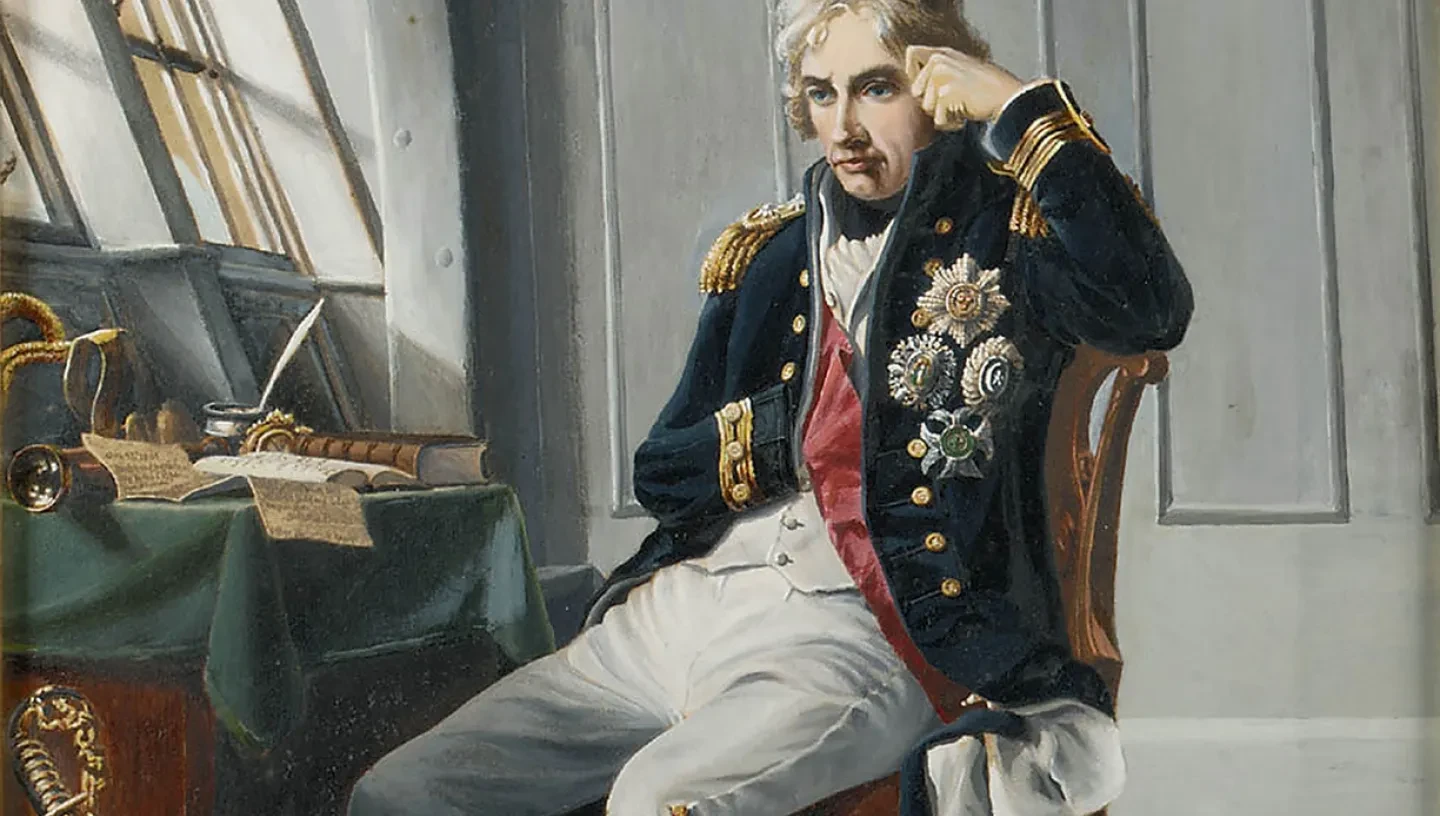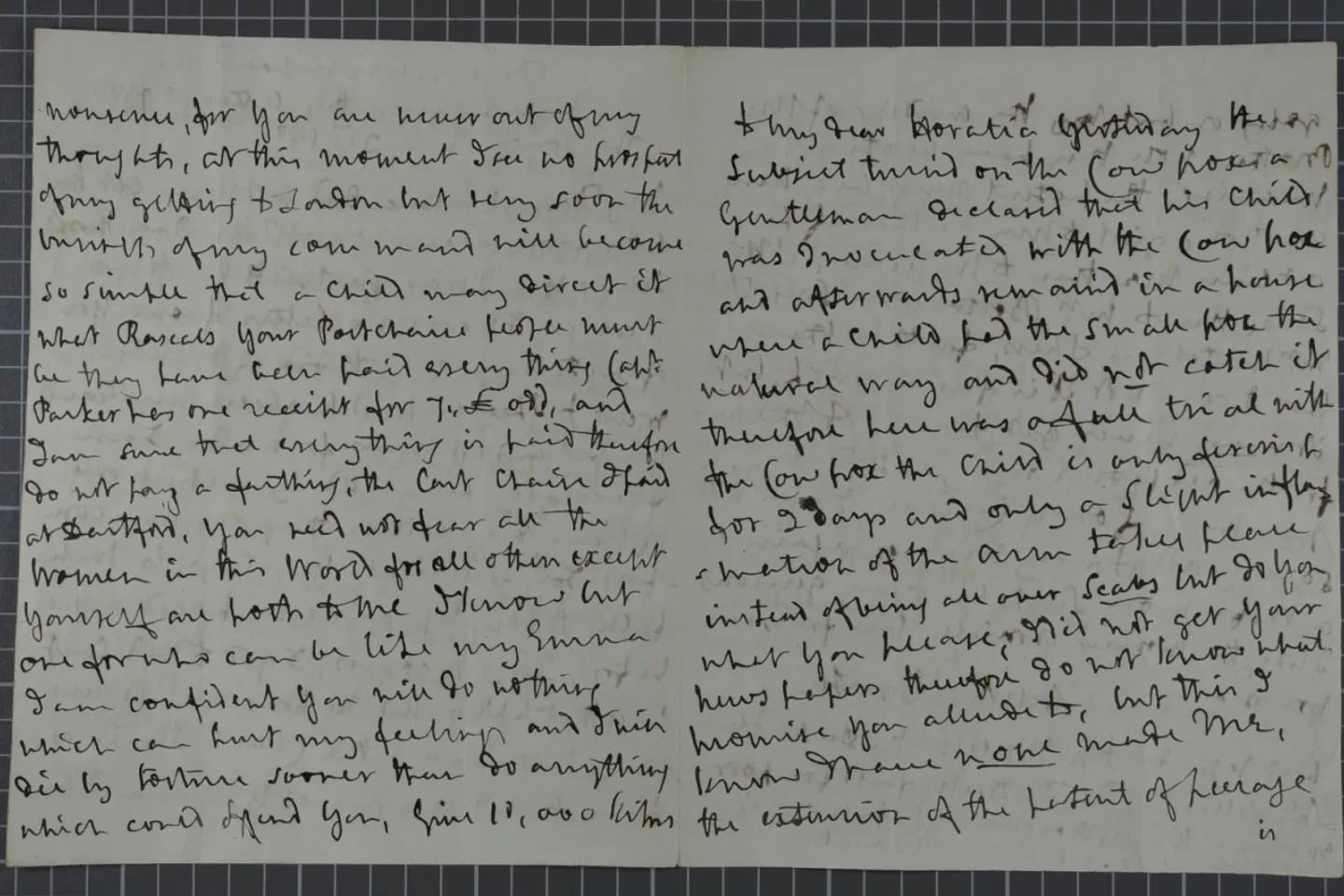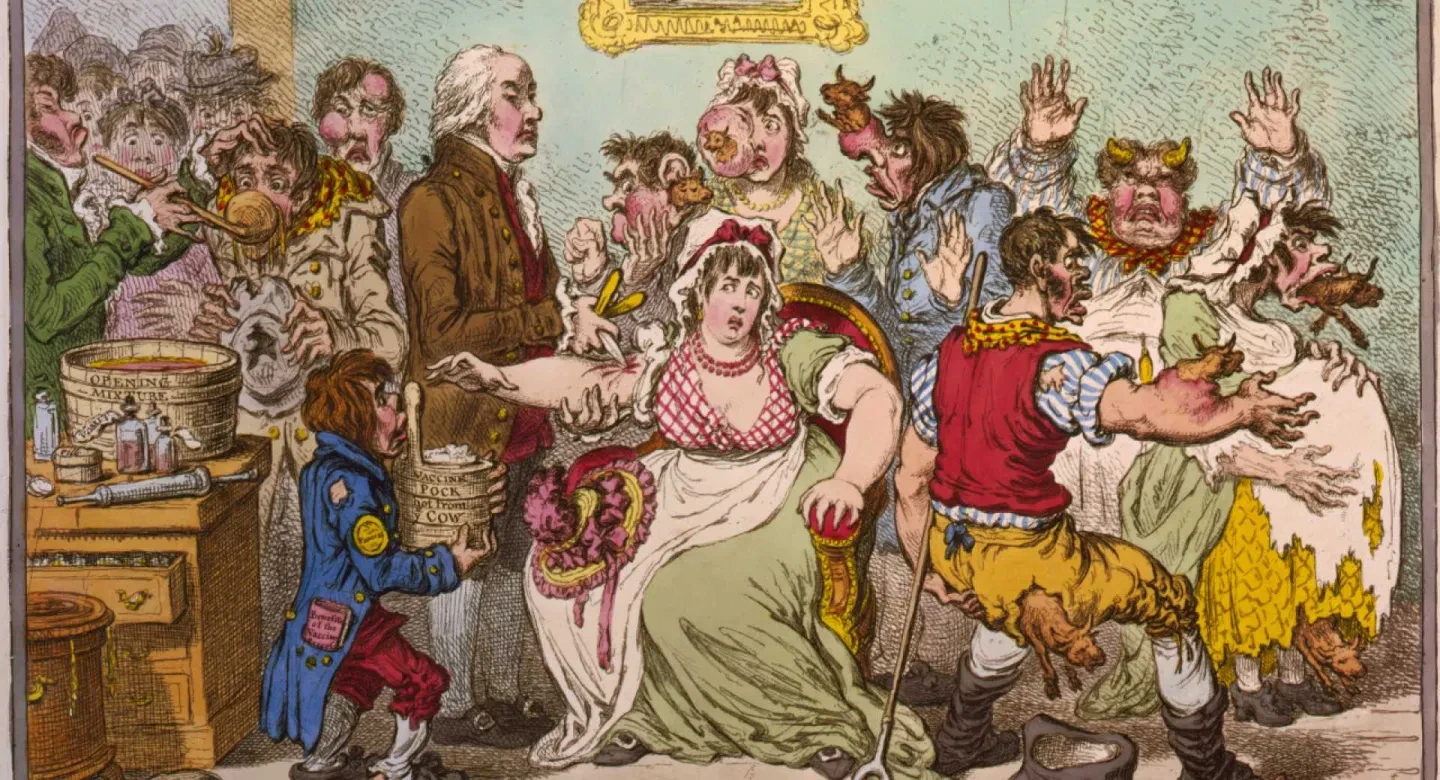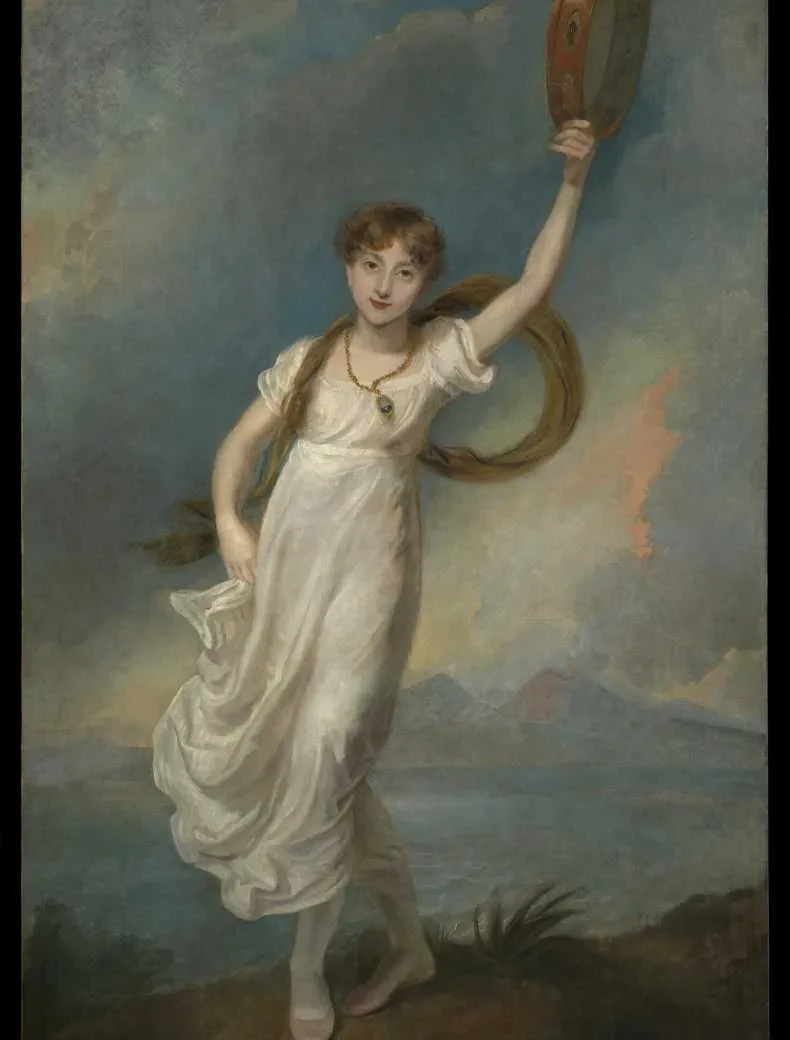
A letter from Admiral Lord Nelson to his lover Emma Hamilton written soon after the birth of their daughter sheds light on early attitudes to vaccination.
Admiral Lord Nelson’s tacit support for vaccination has been revealed in a letter found at Royal Museums Greenwich.
In the letter, Nelson encourages his lover Emma Hamilton to consider ‘inoculating’ their six-month-old daughter Horatia against smallpox.
“Yesterday, the subject turned on the cow-pox,” Nelson says in the letter kept in the collections of the National Maritime Museum.
“A gentleman declared, that his child was inoculated with the cow-pox; and afterwards remained in a house where a child has the small-pox the natural way, and did not catch it,” he writes.
The letter, dated 31 July 1801, was written just three years after Edward Jenner had published the first edition of his work An Inquiry into the Causes and Effects of the Variolae Vaccinae.
Jenner’s research demonstrated that by infecting a person with the mild cowpox disease, they could be protected against the far more deadly smallpox, estimated to be probably the leading cause of death in Britain in the 18th century.
By the end of the 19th century, Jenner’s breakthrough had helped make smallpox only a minor cause of death in Britain. However, at the time that Nelson was writing to Emma Hamilton in 1801, there were still concerns surrounding the new treatment.
Despite this, Nelson appears persuaded that the procedure could protect their ‘dear Horatia’ from smallpox.
“Here was a full trial with the cow-pox,” he explains. “The child is only feverish for two days; and only a slight inflammation of the arm takes place, instead of being all over scabs.”
Nelson ends by respectfully leaving the decision up to Emma, telling her to “do you what you please!”
This letter is one of many passionate messages sent by Nelson and Emma Hamilton during this period.
“Admiral Lord Nelson and Emma Hamilton began a passionate love affair in Italy in 1799,” explains Quintin Colville, senior curator at Royal Museums Greenwich. “He was already a legendary figure following his victory at the Battle of the Nile in 1798. She had been resident in Naples, and was celebrated across Europe as an artist's model.
“They were both married – he to Frances Nisbet (Lady Nelson), and she to Sir William Hamilton – and their relationship consequently exposed them to criticism and challenged the social conventions of the day,” Colville adds.
Their daughter Horatia was born in London on 29 January 1801. Nelson was on active service for much of the first half of the year, but continued to correspond with Emma and ask after their child.
“Give ten thousand kisses to my dear Horatia,” he writes in the letter.
We do not know for sure how Emma Hamilton responded to Nelson’s suggestion to inoculate their daughter.
Jenner’s pioneering work on vaccination would come to be celebrated throughout the world.
In 1801, Jenner was presented with a medal by naval medical officers. In 1802, he was awarded £10,000 by Parliament to support his vaccination work, with a further £20,000 awarded in 1807.
Nelson’s great rival, Napoleon, also celebrated Jenner’s achievements, awarding him a medal in 1804 and even agreeing to release British prisoners of war following an appeal from the scientist, reportedly saying, “Jenner! Ah, we can refuse nothing to this man.”
In 1853, 30 years after Jenner’s death, Britain passed the Vaccination Act, making it compulsory for all infants under three months old to be vaccinated against smallpox.
Transcript of Nelson's letter to Emma Hamilton
Deal - shall be on board the Medusa before this letter go from the Downs - July 31, 1801
My dearest Emma,
Did not you get my letter from Sheerness on Thursday morning, telling you I was just setting off for Deal; as I have no letter from you of yesterday, only those of Wednesday, which went to Sheerness? It has been my damned blunder, and not yours; for which I am deservedly punished by missing one of your dear letters. They are my comfort, joy, and delight.
My time is, truly, fully taken up, and my hand aches before night comes.
I got to bed, last night, at half past nine; but the hour was so unusual, that I heard the clock strike one. To say that I thought of you, would be nonsense; for, you are never out of my thoughts.
At this moment, I see no prospect of my getting to London; but, very soon, the business of my command will become so simple, that a child may direct it.
What rascals your post-chaise people must be! They have been paid every thing. Captain Parker has one receipt for seven pounds odd, and I am sure that every thing is paid; therefore do not pay a farthing. The cart-chaise I paid at Dartford.
You need not fear all the women in this world; for all others, except yourself, are pests to me. I know but one; for, who can be like my Emma? I am confident, you will do nothing which can hurt my feelings; and I will die by torture, sooner than do any thing which could offend you.
Give ten thousand kisses to my dear Horatia.
Yesterday, the subject turned on the cow-pox. A gentleman declared, that his child was inoculated with the cow-pox; and afterwards remained in a house where a child has the small-pox the natural way, and did not catch it. Therefore, here was a full trial with the cow-pox. The child is only feverish for two days; and only a slight inflammation of the arm takes place, instead of being all over scabs. But, do you what you please!
I did not get your newspapers; therefore, do not know what promise you allude to: but this I know, I have none made me.
The extension of the patent of peerage is going on; but the wording of my brother’s note, they have wrote for a meaning to. The patent must be a new creation. First, to my father, if he outlives me; then to William, and his sons; then to Mrs. Bolton, and her sons; and Mrs Matcham, and her’s. Farther than that, I care not; it is far enough. But it may never get to any of them; for the old patent may extend by issue male of my own car-case: I am not so very old; and may marry again, a wife more suitable to my genius.
I like the Morning Chronicle.
Ever, for ever, yours, only your,
NELSON & BRONTE
Best regards to Mrs. Nelson, the Duke, and Lord William.
I have totally failed for poor Madame Brueys.
Bonaparte’s wife is one of Martinique, and some plan is supposed to be carried on.



